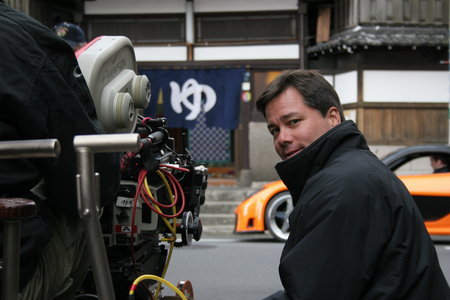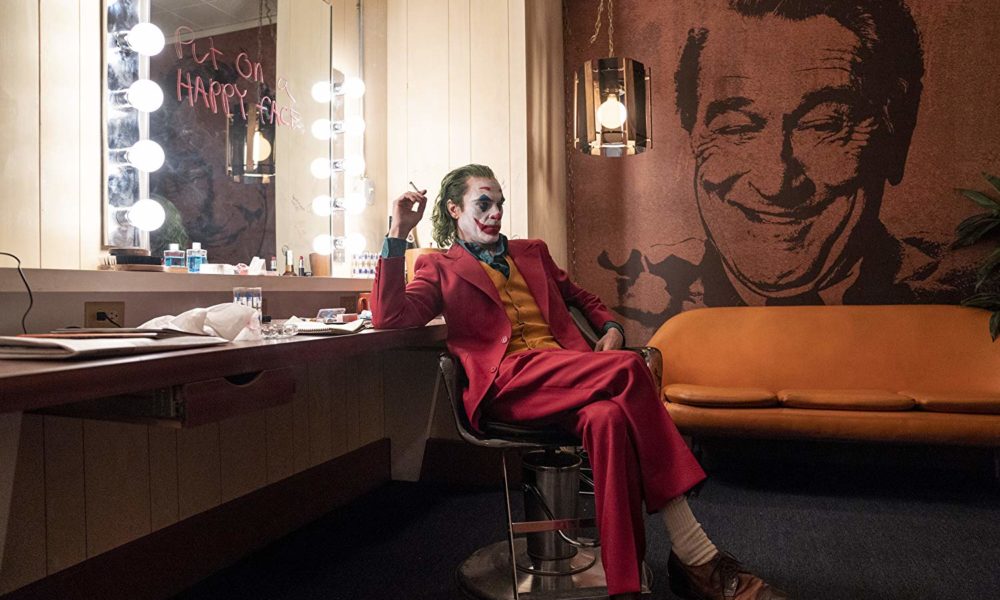Many may be familiar with Joaquin Phoenix’s portrayal of DC Comics supervillain, Joker, in the 2019 titular film, but many don’t know the crew behind the camera.
Long Beach State alumnus Gregory Irwin was the first assistant cameraman for “Joker,” having helped the film earn an Academy Award nomination for Best Cinematography at the 92nd Academy Awards last week. Irwin has been a professional first assistant cameraman for over 40 years, but he was presented with the unique challenge of photographing “Joker” when principal photography began in 2018. His journey to the Dolby Theatre began at CSULB when he graduated in 1983 with a degree in cinematography, film production and business. Irwin went on to shoot films such as “Interstellar,” “The Fast and the Furious: Tokyo Drift” and “American Hustle.”
The Daily Forty-Niner spoke with Irwin to discuss his role on Academy Award-nominated film and his life’s work.
Enlarge

IMDb
What does your job as a first assistant cameraman entail?
I am the head of the camera department with all the technology as well as all the personnel. I am responsible to the studio, to the producers and to the director of photography. He is my immediate boss and he’s usually the one who hires me to do these movies. I’ve been with the same cinematographers for many years. Other than that, I am one of the few hands-on people who are performing the photography, hands-on-the-camera, doing the actual shooting. My primary job with that is to keep all the shots in focus. As the camera moves, as the actors move, the focus changes and it’s my job to maintain sharpness all the time. But the overall job is managerial as well as logistical.
Cinematography can be all-encompassing with the composition and lighting, but why did cinematography resonate with you the most?
I had a love for photography, a love for cameras. I thought I wanted to be a cinematographer back then. I changed my mind after I started doing it professionally and I elected to be on the technical side and again, logistical side then, rather than the creative side. That’s the biggest difference and that was 40 years ago. So, 40 years and counting as a first AC.
Was “Joker” a challenge or a new experience for you?
Joker was a unique experience for all of us because it was an untested topic and the way we shot the movie was very risky. It was risky because all of it was improvisational. We never knew what Joaquin [Phoenix] was going to do. We shot it in a very challenging, cinematic way. We were improvising the whole time and we’re not allowed to make mistakes. If you watch the movie cinematically, there are no mistakes. It was just the unknown. Again, the way we shot it, we didn’t know if Joaquin was going to stand up, sit down, walk left, back up. He was doing whatever was coming to his mind at the moment and we were simply reacting to it. It was challenging, but it was also fresh. Nothing was exactly staged. We would talk about it in broad terms and then we didn’t know what the shot was going to be until we shot it.
With the lessons you learned at CSULB, what did you take with you onto this movie?
I don’t know if I can pin it to any one thing. Steve Hubbert was the head of the film department at Long Beach State, just recently retired, and he is still a very dear, close friend of mine this many years later. We talk all the time. What Steve taught, I think, was responsibility, in particular, self-responsibility. You could make this industry anything you want it to be if you take charge of yourself. And that’s the thing I took away from film school. We could learn [about] the academics of cinema. We could learn the academics of the technology and the equipment. If we’re going to be in the industry, you have to learn that. You don’t have a choice. You have to have a command of all that. But what they don’t teach you in film school all the time is self-responsibility and taking charge of your own career, your own life, thus your own career. And that’s what I took out of that. I think that’s why I became very successful over the last 40 years in this industry, doing many great films because I put it all into it. I laid it on the line and I went for it and that was because of Steve Hubbert.




